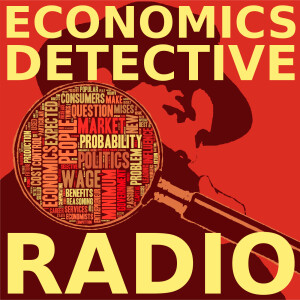
Democracy Versus Epistocracy with Jason Brennan
 2016-09-30
2016-09-30
Download
Right click and do "save link as"
My guest today is Jason Brennan of the McDonough School of Business at Georgetown University. He is the author of Against Democracy, which is our topic for this episode. The first chapter is available on the publisher's website. John Stuart Mill believed that getting more people involved in politics would make them smarter, more concerned for the common good, better educated, and nobler. In the intervening century and a half, we've gathered much more data on Mill's hypothesis, and the results don't look good: The test results are now in. They are, I will hold, largely negative. I think Mill would agree. Most common forms of political engagement not only fail to educate or ennoble us but also tend to stultify and corrupt us." (p. 2) Diana Mutz performed a study that found that people's belief that their political adversaries were evil and stupid predicted high political engagement. Many studies show similar results, where politics seems to exacerbate our biases along with our meanness and contempt for the other side. Jason splits democratic citizens into three broad categories: Hobbits, hooligans, and Vulcans. Hobbits are your average non-voter. They don't care or know much about politics, and they're happy to just live their normal lives without thinking about politics. Hooligans are your typical political partisans. They are the die-hard sports fans of their preferred party. They are typically well-informed, but the information they consume is extremely biased towards their own side. They cannot pass an ideological Turing test. Vulcans are people who see clearly through the morass of politics, understanding the arguments from both sides and possessing the social scientific knowledge necessary to select the best options. And just like the Vulcans from Star Trek, they're completely fictional! Or at least they're very rare. While most of us like to think of ourselves as Vulcans, we're probably more like hooligans. What if the Knowledgeable Chose our Policies? Jason's preferred alternative to democracy is epistocracy, a system where more knowledgeable people have more control over politics. There are many forms this could take. One way of instituting epistocracy is to impose a basic knowledge test on voters. While an econ 101 test would be desirable, it might raise objections from people who view economics as an ideological discipline. But there are many ideologically neutral facts that a voter really ought to know. For instance, someone who doesn't know which party currently holds power probably doesn't have enough information to decide which party is most fit to govern. You could then restrict votes to only the people who pass the test, or you could weight votes from knowledgeable people more heavily. Another option is the "enfranchisement lottery" where a random subset of the population (perhaps a few thousand) are selected to vote, but only if they undergo exercises to build their competence as voters. This is somewhat similar to how a jury trial works, where a legal decision is left to a random group of citizens, but only once they have received extensive instruction from a judge, lawyers, expert witnesses, etc. Finally, you can set up a hybrid system with democratic and epistocratic elements. For instance, you could have a democratic body decide policy while an epistocratic body retains a veto. The Supreme Court functions in this way, since it grants a group of highly educated judges the power to overturn democratically supported laws. Democracy is Not an End in Itself Jason encourages his fellow philosophers to think more like social scientists. While philosophers tend to view democracy as an end in itself, social scientists are more interested in whether it has good outcomes. Does democracy promote economic growth more than other systems? Are fewer people persecuted under democracy than under other systems? Are people happier in a democratic system than they would be in an alternative system? These are the sorts of questions we should be asking about our system of government.
view more
More Episodes
The Wealth of Nations with Sarah Skwire
 2021-02-04
2021-02-04
 2021-02-04
2021-02-04
Arts and Minds with Anton Howes
 2020-08-31
2020-08-31
 2020-08-31
2020-08-31
Science Fictions with Stuart Ritchie
 2020-08-14
2020-08-14
 2020-08-14
2020-08-14
BONUS: The Passion Economy
 2020-07-08
2020-07-08
 2020-07-08
2020-07-08
Angrynomics with Mark Blyth
 2020-06-29
2020-06-29
 2020-06-29
2020-06-29
Free to Move with Ilya Somin
 2020-06-04
2020-06-04
 2020-06-04
2020-06-04
Market Urbanism with Scott Beyer
 2020-05-14
2020-05-14
 2020-05-14
2020-05-14
Under the Influence with Robert H. Frank
 2020-05-08
2020-05-08
 2020-05-08
2020-05-08
Ten Percent Less Democracy with Garett Jones
 2020-03-23
2020-03-23
 2020-03-23
2020-03-23
012345678910111213141516171819
Create your
podcast in
minutes
- Full-featured podcast site
- Unlimited storage and bandwidth
- Comprehensive podcast stats
- Distribute to Apple Podcasts, Spotify, and more
- Make money with your podcast
It is Free
- Privacy Policy
- Cookie Policy
- Terms of Use
- Consent Preferences
- Copyright © 2015-2024 Podbean.com





